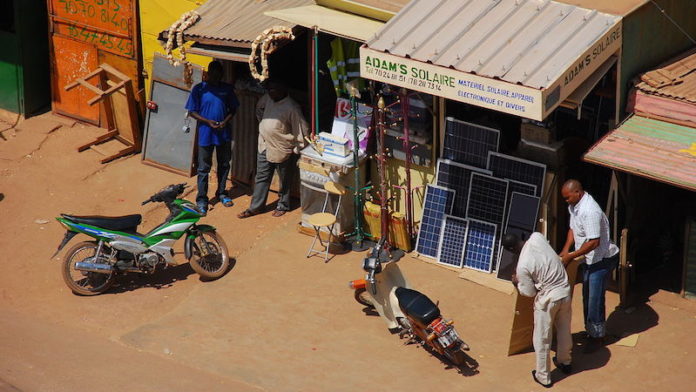The move reflects Uganda’s commitment to ensuring the viability of small and medium-scale renewable energy projects
KAMPALA, Uganda, — Uganda becomes the first African country to sign an agreement with the Regional Liquidity Support Facility (RLSF), a joint initiative of the African Trade Insurance Agency (ATI) (www.ATI-ACA.org), a Pan-African and multilateral guarantor and KfW with funding from German Ministry of Economic Cooperation and Development. Under the program, RLSF will offer protection to new small and mid-sized renewable energy projects (up to 50 MW) in Sub-Sahara Africa.
The World Bank estimates that the continent needs to generate annual capacity of 7,000 MW but such a ramp-up in generation capacity cannot be achieved without private sector participation. The RLSF, as a pragmatic option, could therefore become a more widely used solution to solve Africa’s energy deficit challenge.
The RLSF has an initial capacity equivalent to USD74 million and will protect Independent Power Producers (IPPs) against the risk of delayed payments by public off-takers. This type of guarantee is a common requirement from the banks that fund the projects. Many projects have failed in the past to access funding because this guarantee was not available.
The move reflects Uganda’s commitment to ensuring the viability of small and medium-scale renewable energy projects. Speaking during the signing ceremony, Honorable Matia Kasaija, Uganda’s Minister of Finance, Planning and Economic Development commented on the government’s commitment to improving conditions for investors within the energy sector – “Uganda has a solid history of supporting our public concession with upwards of USD500 million spent in the last decade on improvements to the grid. With this agreement, we see RLSF providing a perfect complement to our on-going strategy of accelerating the delivery of clean energy to the national grid.”
Uganda is seen as an ideal market based on the relatively high number of viable Independent Power Producers (IPPs). The country has also benefited from the GET FiT program, which is an existing energy-sector initiative managed by KfW on behalf of Government of Uganda, that supports countries to develop a standardised set of documentation for power projects and an enabling regulatory framework for IPPs. This gives the necessary comfort to developers and lenders to invest in renewable energy projects. GET FiT has been a success in Uganda, attracting 19 IPPs in the last five years.
Under the RLSF program all renewable IPPs that have not reached financial close, as well as new IPPs can apply for the product.
“RLSF is a tool that can ensure more renewable energy projects reach financial close. For Africa, small and mid-sized projects may be a better fit to the current environment requiring less financing and they can be implemented much quicker. This could be a model that works in many other African markets that may just pave the way for an expansion of the facility or other such initiatives,” noted George Otieno, ATI’s Chief Executive Officer.
The agreement was signed by Hon. Matia Kasaija, Minister of Finance, Planning and Economic Development, Hon. Irene Nafuna Muloni, Minister of Energy and Mineral Development, Mr. Willy. K. Kiryahika, Managing Director & CEO, Uganda Electricity Transmission Company (UETCL) and Mr. George Otieno, CEO, African Trade Insurance Agency (ATI).
























